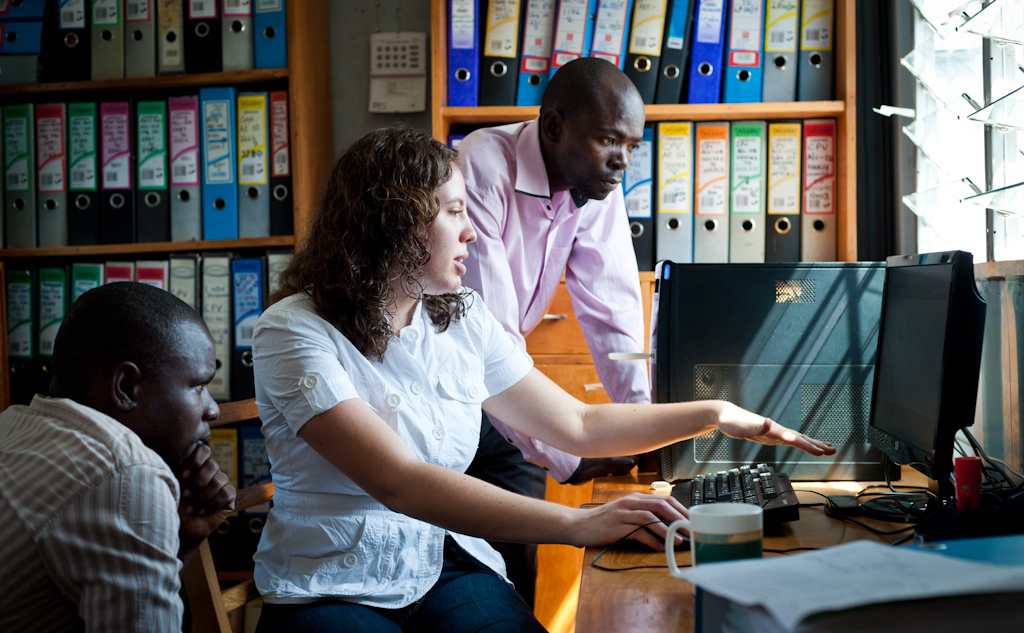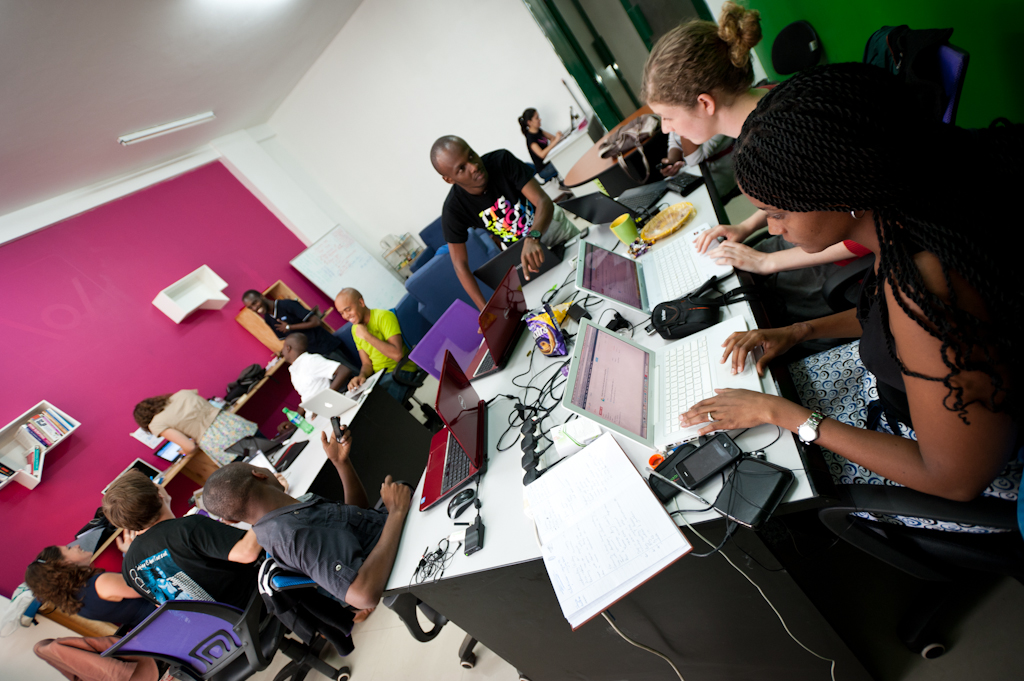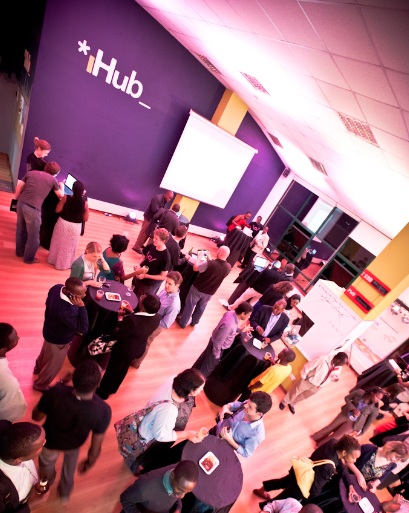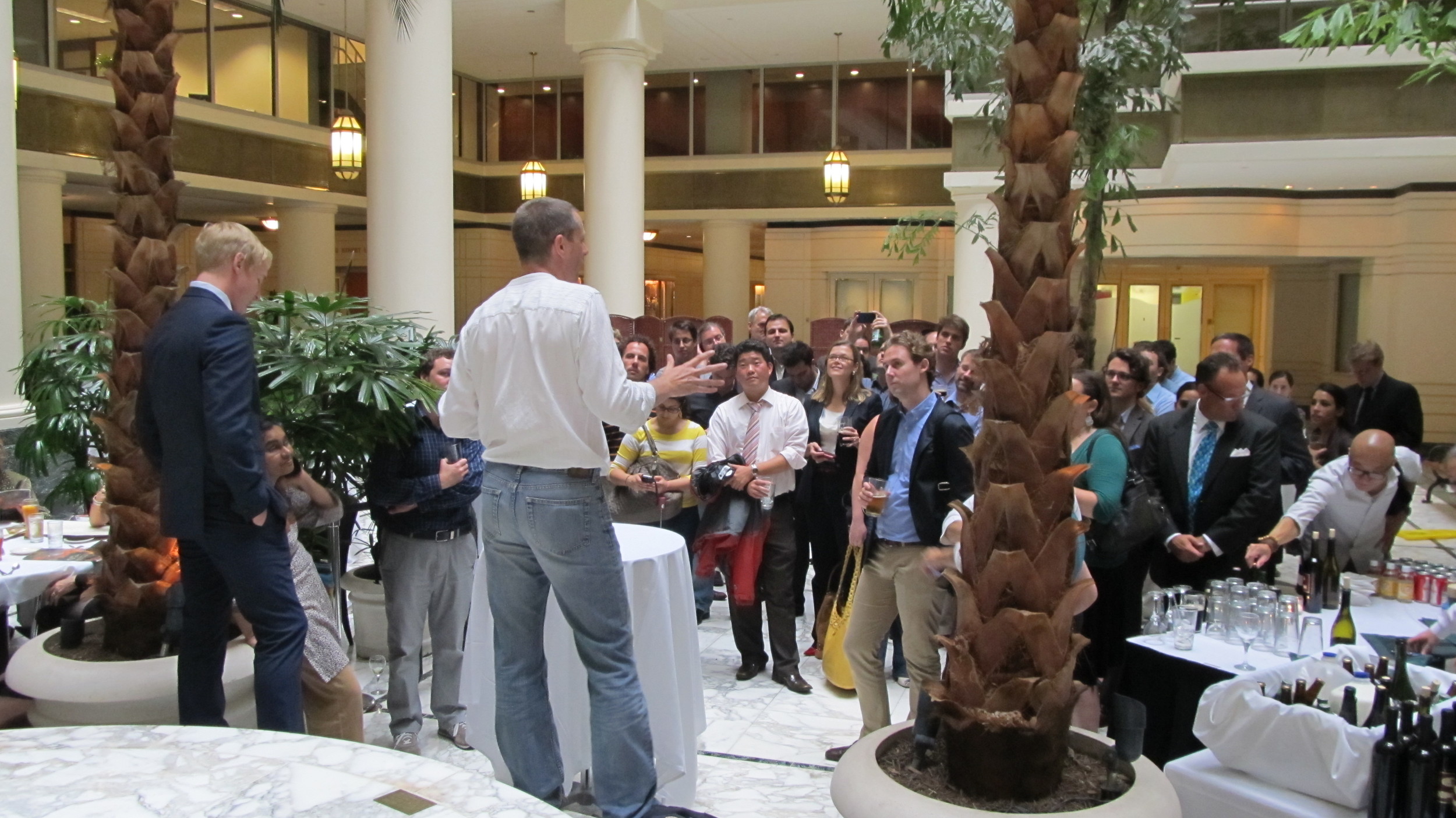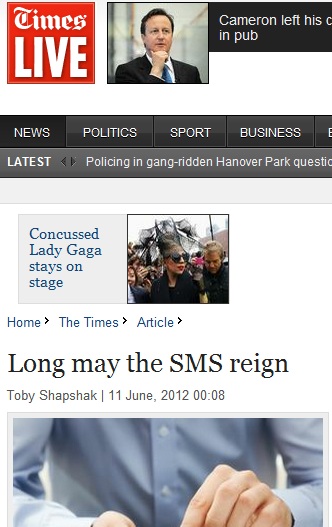Good news from the software sector: FrontlineSMS Version 2 is here at last! Two years in the making, the updated version is simpler, more intuitive, and easier to utilize. It also adapts more easily to individual needs and systems, and has already met an enthusiastic response from the SMS community. And with all it has to offer, the new software should prove a valuable contribution in the effort to achieve positive social change in developing countries around the world.

FrontlineSMS is a free, open source, SMS-messaging software that empowers the user to communicate with large groups of people through a mobile network. Basically, with just a laptop and a mobile phone, the initiator can create a communications hub that allows him to send, receive, and manage text messages.
The software is easy to set up and doesn't require an Internet connection—an important feature, since many FrontlineSMS users come from remote areas where reliable Internet connections simply don't exist. (The software has a significance presence in underdeveloped parts of Africa, for example.) Uniquely equipped to serve remote areas and the local communities who live there, FrontlineSMS is a powerful tool for achieving positive social change and health improvement by breaking down communication barriers and allowing instantaneous, two-way exchanges of information.
FrontlineSMS: Version 2
As an organization, FrontlineSMS offers individualized training and support to organizations embarking upon social change projects. It is also very proactive about acquiring user feedback and incorporating it into software updates and new releases. From the start, FrontlineSMS has focused on meeting the actual needs of local people by consistently engaging its user base.
FrontlineSMS Version 2 incorporates an extensive amount of that user feedback and represents “a significant step forward.” As an overall assessment, the software is said to be “easier and more intuitive to use, more versatile, and capable of being more easily extended with new functionality.” (For a detailed overview of the changes and additions, consider this description from the FrontlineSMS web site.)
A stronger and more flexible architecture allows the software to be integrated into more platforms and systems, and permits users and developers “to customize FrontlineSMS to better meet their needs”. So far, the response to FrontlineSMS Version 2 has been enthusiastic.
In addition to its core software, FrontlineSMS offers four sector-specific programs:
- FrontlineSMS:Credit (“enables organizations to easily manage mobile money”)
- FrontlineSMS:Legal (“increases the reach, transparency and efficiency of legal systems in underserved areas”)
- FrontlineSMS:Learn (“supports and strengthens] education and training initiative and human capacity development”)
- FrontlineSMS:Radio (“represents a vital outreach particularly for rural communities” and “[fosters] two-way dialogue”).
FrontlineSMS:Learn and FrontlineSMS:Credit are currently running on Version 1.7, but will eventually be updated to the full-scale Version 2.
FrontlineSMS: Valuable Social Change and Healthcare Tool
Today, FrontlineSMS is used in over 80 countries. Not surprisingly, its usage remains concentrated in developing countries where mobile technology continues to increase dramatically. According to this report, the number of globally-sent texts tripled between 2007-2010. The numbers add up to 6.1 trillion texts, all told, or 200,000 texts sent each second. Mobile technology is a powerful communication tool in the developing world, and FrontlineSMS has had no trouble tapping into it.
“If you go to the developing world and you look at how cellphones are being used you can really see that people are already doing this kind of organizational management, communicating with stakeholders, communicating with people they're working with and for,” Laura Hudson, FrontlineSMS CEO, stated.
A recently-released survey confirms the organization's growth and success. Currently most users are located in Africa, but there is a growing presence in Asia, India, the Philippines, Malawi, and Pakistan. Around 78% of FrontlineSMS users belong to grassroots non-governmental organizations (NGOs) operating in developing countries. As an open source product, FrontlineSMS is highly adaptable and thus valuable in situations and projects requiring low costs and ample flexibility. The fact that no Internet and only basic tools are required (laptop and mobile phone for the initiator; mobile phone for the receiver) is also an immense help. This arrangement allows the software to be used on the road or during power outages, for instance. Thanks to FrontlineSMS, NGOs have been better equipped to address human rights issues, manage natural resources, provide disaster relief as well medical care and supplies to remote regions, organize political protests, collect field data, conduct public surveys, educate the public on various topics, and much more.
Take Burundi as an example. In an African country where political elections often provoke violence and catch ordinary citizens in the crossfire, FrontlineSMS has proved useful. During election season, the Great Lakes Region of Africa (AGLI) teamed up with the Healing and Rebuilding Our Communities (HROC) program and created the Burundi Election Violence Prevention Program. The 750 participants used FrontlineSMS on their mobile phones to monitor election sites by reporting arrests or violent incidents, sending out alerts if irregularities or unsafe situations arose, and keeping each other up to date on the situation. In one instance, participants communicated with the police via FrontlineSMS to secure the release of an innocent citizen who had been arrested.
Likewise, in Indonesia, rural farmers in West Kalimantan have used FrontlineSMS to “report, connect, and raise awareness of their issues” in an area dominated by a contentious palm oil industry whose activities have sometimes caused problems for the farmers. By partnering with the local news station, Ruai TV, farmers have raised awareness of the situation and made their voices heard; by using FrontlineSMS, farmers are able to keep each other up to date on situations, back each other up during conflict, and mobilize as a unified group.
Or consider an offshoot organization like FrontlineSMS:Credit. In Africa, where economic development is severely hampered by lack of rural banks and stable monetary systems, mobile payment through SMS services is a huge development that eliminates problems caused by delivering cash payments over long distances. Without mobile money, for example, farmers wait “weeks or months” before receiving payment, and the employees who deliver those cash payments must travel long distances--sometimes through unsafe areas. FrontlineSMS:Credit saves time and reduces the risk of traveling with large amounts of cash, increasing efficiency and allowing workers in all sectors to focus on farming, delivering quality healthcare, or whatever their jobs entail.
The system also works as a kind of rudimentary SMS Craigslist. Users of the full suite and post notices of the products and services they offer or are seeking. This has been a boon, for example, for farmers who have significantly expanded their market and thus can obtain better prices while buyers are able to purchase high quality food at fairer prices. By supporting free market local economic activity, FrontlineSMS makes highly nutritional food more available and helps alleviate food shortages.
It may be relevant to our readers that FrontlineSMS, in addition to being used as an agent for social change, maintains a powerful presence in the healthcare sector as well. Almost right from the start, it was used to improve care coordination at a poverty-stricken health clinic in Malawi. Since then, its application to healthcare has only expanded. Consider these examples:
- In Cambodia, Sophie Baron is working on a pilot study to monitor and contain animal diseases that present a significant threat to agricultural livelihoods. In conjunction with the CIRAD, IPC and VaVRI, Baron is testing a system designed to monitor animals' deaths and diseases in local farming areas. Weekly reports allow workers to track diseases, discover the source of an outbreak, and keep tabs on the general situation. According to Baron, “Receiving regular data via SMS—and being able to manage this data within FrontlineSMS—helps enable NaVRI to adopt more timely and effective response mechanisms to breakouts of animal diseases.”
- Cleopa Otieno, National Coordinator of KenTel, uses FrontlineSMS to text people living with HIVin Kenya. The program is (or was, as of November 2011) still in the works, but a pilot study enabled telehealth centers to provide victims of HIV with information concerning health and prevention of infection and disease. As it grows, the program will become more and more interactive, encouraging participants to make the most out of the resources available.
- In Kenya and Uganda, Stop Stockouts is lobbying for the African governments “to meet their obligations to provide essential medicines” by increasing the national budgetary allocation” for purchasing medicines and “by ensuring efficiency and transparency in the procurement, supply, and distributions of medicines.” Stock-outs (which occur when a health center or pharmacy runs out of a medicine) can significantly delay treatment and subject patients to serious and aggravated health risks. Stop Stockouts relies on FrontlineSMS for campaign communication and monitoring of medicine availability.
- In 2011, the Institute for Reproductive Health partnered with FrontlineSMS to provide an mHealth service called CycleTel, which “helps women take charge of their reproductive health and use an effective family planning method” by empowering them with knowledge about their days of fertility and so forth. IRH used FrontlineSMS to manually test the CycleTel program in two Indian cities, Lucknow and New Delhi. The software proved to be “a crucial and practical step in the technology development process” and contributed to the overall product.
FrontlineSMS: The Ongoing Story
The idea for FrontlineSMS began with a conservation trip to South Africa in 2004. Ken Banks, working with authorities to establish better communication with nearby communities, realized the need for tools that would enable information exchange in remote areas. In places like Africa, NGOs typically lack money, expensive equipment, and reliable access to Internet and electricity—but they do carry mobile phones. At the time, there was no group-SMS system in existence that could operate in remote locations, so Banks decided to make his own: “I wrote the software in five weeks at a kitchen table,” he says in this article for National Geographic. “I made it a generic communications platform that could be used for almost anything, and I made it free.”
Although he wrote the software to fix a specific problem, Banks also focused on creating software that was adaptable to different situations and purposes: “I also felt that other disciplines – health, agriculture, education and human rights among them – were no different, so FrontlineSMS did not seek to solve a particular problem in a particular place, but sought to be an all-purpose tool, and be all things to all people.”
FrontlineSMS has successfully scaled communication barriers and provided catalysts for social change and healthcare improvement in more than 80 countries worldwide. (Not bad for an organization that hired its first employee in 2009.) Made available online in 2005, FrontlineSMS was transferred to an open source platform in 2008. The same year, Banks started working with Josh Nesbit (co-founder of Medic Mobile) on a project to improve management and patient care at a clinic in Malawi. The project stirred up a wave of eager interest and encouraged other people and NGOs to adopt FrontlineSMS for their own projects and organizations.
Since then, the software has continued to garner praise and recognition. The year after Ken Banks worked with Nesbit at the Malawi clinic, FrontlineSMS won the Silicon Valley Tech Award and received funding from OSI, the Hewlett Foundation, and the Rockefeller Foundation. In 2010-2011, founder Ken Banks was named an Ashoka Fellow as well as a National Geographic Emerging Explorer, and carried off the Pizzigati Prize to boot. Meanwhile, FrontlineSMS won the Curry Stone Design Award in 2011. The software has been downloaded over 25,000 times, and has had a profound impact upon the lives and livelihoods of many communities in developing countries, especially Africa.
Meanwhile, FrontlineSMS is passing by another milestone in its history. This May, founder Ken Banks announced his intention to step back and take a more relaxed role in the organization, choosing to focus on other projects which a full-time commitment to FrontlineSMS had prevented him from developing (details will be posted on his blog). Laura Walker Hudson and Sean Martin McDonald, future CEO of kiwanja Foundation and CEO of kiwanja Community Interest Company, respectively, will lead FrontlineSMS forward to the next stage of its development.
Regarding that next stage, Banks is optimistic: “It’s an incredible time to be working in the field of technology-for-social-change, and I’m excited about the future for FrontlineSMS, its users and the team behind it,” he reflects in his transition announcement on the FrontlineSMS website.
If the past is any indication of the future, there's good reason to feel excited. In just a few years, FrontlineSMS has built a strong history of continued growth, successful problem-solving, cultural outreach and technological advancement. Innovative, low-cost, and flexible, FrontlineSMS is uniquely poised to make a difference in the developing world. And the good news is, it already has. So here's to the new and improved FrontlineSMS.


